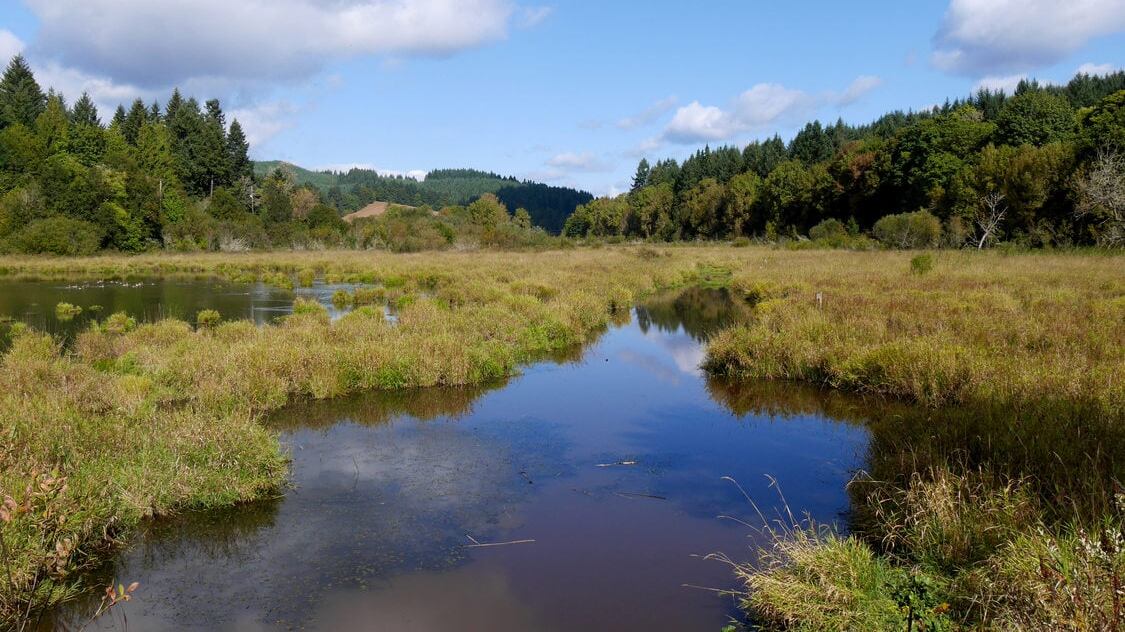Gov. Tina Kotek got elected last year with strong support from environmental groups. But since taking office, she’s made housing production her top priority—putting her at odds with them.
In June, Kotek teamed with Senate Republicans to try to preempt long-standing land use protections. Environmentalists blocked that bill, but they’re already facing what they see as another war—a draft proposal from a subcommittee of Kotek’s Housing Production Advisory Council that advocates scrapping state law to greenlight the development of “marginal or degraded wetlands.”
That, say many environmental leaders, would be a grave mistake.
“Oregon has been a leader in protecting its remaining wetlands,” says Quinn Read, conservation director for Portland Audubon. “This proposal would undo that legacy. We are in the midst of a housing crisis. But we don’t have to indulge these ‘either/or’ proposals that falsely imply we can either have housing or thriving wetlands and urban ecosystems.”
WHAT CHANGED? On May 25, the U.S. Supreme Court ruled in Sackett v. EPA that the feds could only regulate wetlands that had a “surface connection” to navigable waterways. That meant isolated wetlands cut off from flowing water could be filled. (Willamette Riverkeeper conservation director Bob Sallinger says local examples include wetlands on Sauvie Island, in the industrial Columbia Corridor and along Johnson Creek.) President Joe Biden said the decision “upends the legal framework that has protected America’s waters for decades.” On June 5, the Oregon Department of State Lands, which regulates Oregon’s wetlands, issued an unusual statement. “Sackett v. EPA has been a source of heartache and confusion for people who care about protecting wetlands,” the agency said. “Oregon has strong state laws to protect wetlands and continues to require permits for projects that remove or add materials in wetlands.” But last week, Kotek’s panel, which is developer-heavy, instead cited Sackett as an opportunity: “The state of Oregon now has a viable path for development of marginal or degraded wetlands to allow for needed housing development,” the panel wrote. “Federal protections adopted by the DSL should now be relaxed to the maximum extent possible as an emergency measure.”
WHY DOES IT MATTER? Oregon has 1.3 million acres of wetlands, state figures show, down from 2.3 million acres in the late 1700s. As scientists have learned more about climate, they have come to appreciate the vital role wetlands play. “Wetlands provide critical habitat for fish and wildlife, reduce flooding, manage stormwater, improve water quality, protect us from extreme heat, and sequester enormous amounts of carbon,” Audubon’s Read says. “Oregon has already lost almost 1 million acres of our historic wetlands. This proposal would pave the way (literally) to wipe out even more, making Oregon less resilient to the impacts of climate change.”
WHAT’S THE CONSEQUENCE? “This proposal is a handout for developers who seek to make huge profits from developing in high-risk, flood-prone areas while also burdening communities with the added social cost of eliminating wetlands, which are tremendously important for preventing the worst impacts of flood events,” says Chelsea Stewart-Fusek, a lawyer for the Center for Biological Diversity. “Federal law provides the floor for how Oregon must treat wetlands, not the ceiling. The worst thing Oregon could do in the face of the climate change-induced, severe flooding that we’ve been seeing nationwide is to weaken its standards.”
WHAT DOES KOTEK SAY? Kotek’s spokeswoman, Elizabeth Shepard, says the draft proposal is simply that. “Currently, there are no recommendations to the full council regarding wetlands,” Shepard says. But she reiterates that Kotek is deadly serious about putting roofs over people’s heads. “Gov. Kotek set a new goal of building 36,000 housing units per year over the next decade,” Shepard adds. “There are all kinds of conversations happening to be bold on meeting this goal.”
WHAT’S NEXT? Peggy Lynch of the Oregon League of Women Voters watched Kotek’s advisory panel meeting, but just by chance. As her group’s longtime natural resource advocate, she couldn’t believe what she was hearing and sounded the alarm. Now, the panel will hear from more experts. “The League appreciates that the work group will be learning more about the role of wetlands,” Lynch said in an email. “Although we understand that the Housing Production Advisory Council holds open meetings, each of the work groups have not been noticed to the general public. The presentation on wetlands is an example of why all Oregonians should be aware of these meetings.”
